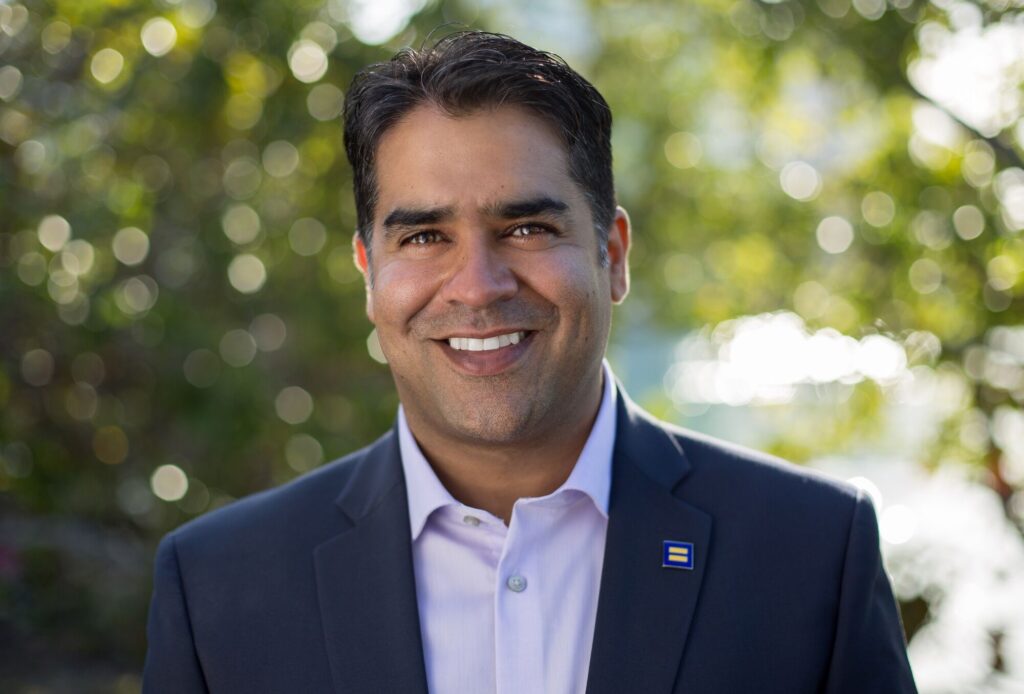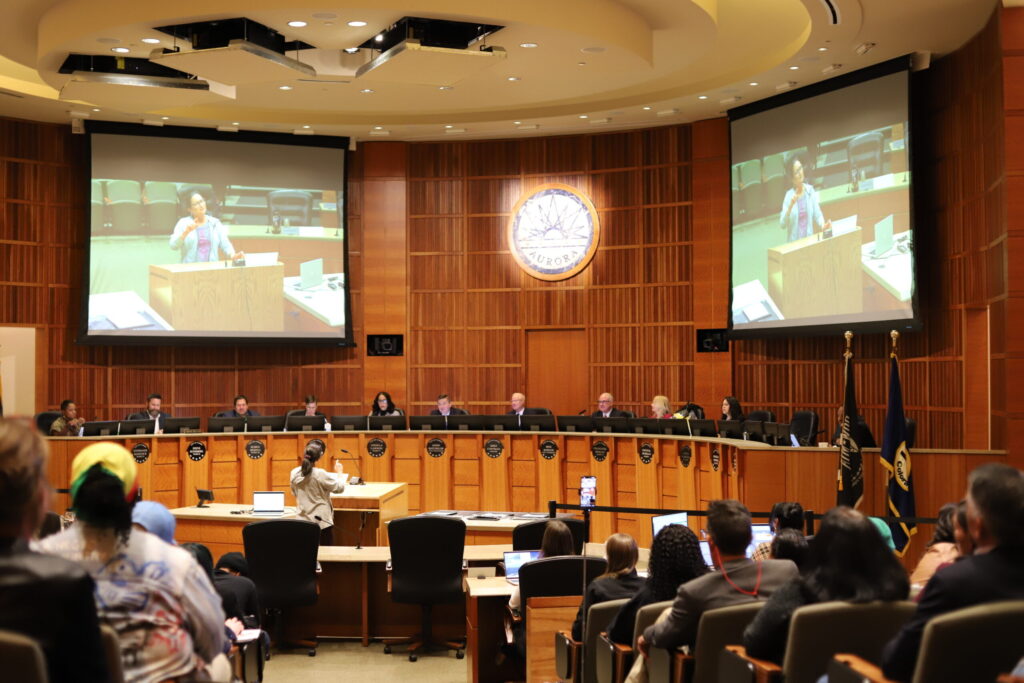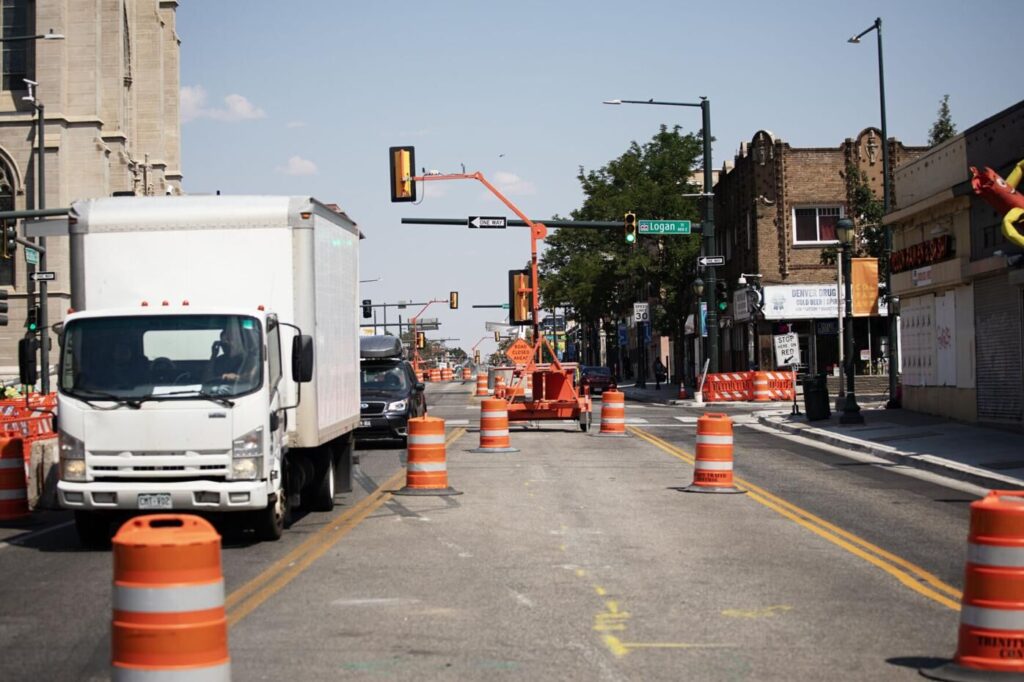Denver municipal elections: More of the same, but different

Denver Mayor Michael Hancock strolled to a second term on Tuesday against a handful of mostly unknown challengers, but voters stunned two city council veterans, sending one packing by a wide margin and denying another his bid for election as city auditor.
The message in the low turnout, nonpartisan election was clear: More of the same, only different.
Voters are likely to get their wish.
In addition to Hancock, City Clerk and Recorder Debra Johnson, At-large Councilwomen Debbie Ortega and Robin Kniech, and five of the 11 district council members all won reelection. But the defeat of District 1 Councilwoman Susan Shepherd by architect and neighborhood activist Rafael Espinoza — the first time a Denver incumbent has been ousted in 28 years — and the arrival of six rookies on city council, due to term limits and one member who sought another office, promise a majority of fresh faces, many elected on campaigns critical of city policies.
To top it off, the city auditor race went to accountant and novice politician Timothy O’Brien, who hammered his far-better funded opponent, Councilman Chris Nevitt, for brandishing the endorsements of many of Denver’s most prominent names, including Hancock and term-limited City Auditor Dennis Gallagher. O’Brien proclaimed that he hadn’t sought endorsements and lashed Nevitt for cozying up with the officials he would be charged with holding accountable.
Four open city council seats will be decided in June runoffs because no candidate cleared 50 percent of the vote. Two council candidates won open seats outright, while the remaining six incumbents were reelected, three without opposition.
According to the city clerk’s office, 99,466 voters cast ballots in the all-mail election, amounting to just under 24 percent of active voters.
Denver officials serve four-year terms and are limited to three terms in office.
Hancock proclaimed victory shortly after 8 p.m., with 80 percent of the vote, according to final, unofficial results. His opponents, a trio of perennial candidates — “Chairman” Sekú, Paul Noël Fiorino and Marcus Giavanni — all scored in single digits, and a late write-in campaign by neighborhood activist Larry Ambrose just cleared 2 percent of the vote.
“Tonight, we write a new page in the history of our great city,” Hancock said before a cheering crowd of several hundred supporters at the EXDO Event Center on the edge of Lower Downtown.
Hancock was joined at the election-night watch party by Johnson, Kniech and District 9 Councilman Albus Brooks — all took the stage for victory speeches — and Nevitt.
Looking back at his win for a first term four years ago, Hancock proclaimed that Denver has roared back from the wake of the recession, adding tens of thousands of new jobs and thousands of businesses, all while restoring a city budget that had been “cut to the bone” during tougher economic times.
“Tonight, we heard loud and clear that the people of Denver want four more years of progress,” said a triumphant Hancock. “They want more jobs for our hard-working residents, more housing for our families, more opportunities for our children, and more progress towards Denver taking its rightful place on the international stage as a global city where everyone matters. And for the families struggling with the cost of housing, for those that believe, as I do, that a great city must be better connected, with safe, vibrant neighborhoods, and filled with compassion, we will find those solutions together.”
Johnson easily won a second term with 84 percent of the vote over challenger Joan Poston.
Ortega and Kniech won second terms with 38 percent and 30 percent of the vote, respectively, in a five-candidate field. (Theirs is the only race that isn’t subject to the 50-percent threshold, with the seats going to the top two vote-getters.)
O’Brien edged Nevitt with 53 percent of the vote to 47 percent, despite Nevitt having swamped his opponent with campaign contributions. According to filings with the city right before the election, Nevitt raised nearly $300,000 and O’Brien reported taking in $70,000.
Just before the first round of election results posted at 7 p.m., Nevitt was the picture of confidence at the election-night party at EXDO, dismissing O’Brien’s claims that he was too close to city officials. “This is Denver, we all get along,” a smiling Nevitt told The Colorado Statesman. “There’s nothing wrong with that.” But a few minutes later, after initial results showed O’Brien up by roughly 9 points, Nevitt disappeared and stayed out of sight for a couple hours. Later, though Nevitt mingled in the crowd, an aide said he wouldn’t be speaking to reporters.
Espinoza defeated Shepherd with 69 percent of the vote to the incumbent’s 31 percent. The upset marks another loss for the better-funded candidate: Shepherd reported raising just under $100,000, while Espinoza posted $35,000 in filings submitted earlier this week.
An effusive Espinoza told The Statesman voters agree with his sharp criticism of the pace and quality of development in the city’s booming neighborhoods.
“This is a mandate that the community wants to be heard about these issues impacting northwest Denver and the rest of the city, so that there’s some sort of reasonable compromise,” Espinoza said. “It’s a mandate to manage growth in a way that’s sustainable environmentally and sustainable culturally.”
Espinoza said he hopes to lead the council on “the development issues, the infrastructure issues, the finance issues,” particularly because those questions have been central in the six open city council races. In addition, he maintained, since both at-large council members live in District 1, he’s hoping they’ll join the newcomers to establish a veto-proof majority of nine council votes standing up to runaway development and ever-increasing density in parts of the city.
Kniech had a different take on the results in District 1.
“I live in that district and I have almost the same voting record as Susan had,” she told The Statesman. “A lot of that race came down to a personality conflict.” Rather than a wholesale rejection of the city’s development policies, she said, Shepherd likely lost because she failed to connect with residents. “Susan tried — she was diligent, she was advocating for that community at every turn, getting developers to make concessions. But she didn’t communicate that to her district well enough.”
For her part, Kniech claimed her own mandate based on her signature campaign issue, expanding the availability of affordable housing in Denver as the real estate market booms.
“I believe the voters weren’t just saying they were OK with what I want to do, they were demanding it. I feel like I go into my second term with strong voter support for (affordable housing),” she said.
She disagreed with the notion that Shepherd and Nevitt’s defeats signaled anything beyond those two races.
“The election was a quiet one. We didn’t hear from most voters. You can’t underestimate that most voters felt happy with the city — so happy that they didn’t feel motivated to do anything about it. It’s a sad state of affairs for democracy, but it’s a strong endorsement for the state of the city,” Kniech said. “We have to be responsive to what we heard from folks, and what we heard was they want to know what we’re doing to keep up with growth, they want to know what we’re doing with infrastructure.”
District 3 Councilman Paul Lopez, District 5 Councilwoman Mary Beth Susman and District 8 Councilman Chris Herndon all won reelection without opposition. In the District 4 seat left open by term-limited Peggy Lehmann, Kendra Black won with 55 percent of the vote. Paul Kashmann defeated Liz Adams in the District 6 seat left open by term-limited Charlie Brown. District 9 Councilman Albus Brooks fended off a pair of challengers, winning 68 percent of the vote for another term.
The four districts headed for runoffs are District 2, where John Kidd scored 34 percent of the vote and Kevin Flynn tallied 22 percent; District 7, where Jolon Clark received 26 percent, over Aaron Greco’s 16 percent; District 10, where Wayne New barely edged Anna Jones, 34 percent to 33 percent; and District 11, where Stacie Gilmore will face Sean Bradley after outpolling him 38 percent to 24 percent.
The runoff will be an all-mail election, with ballots due June 2.













